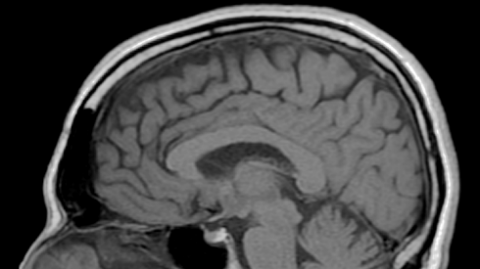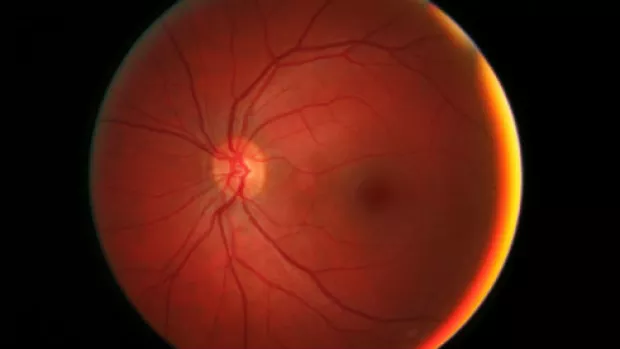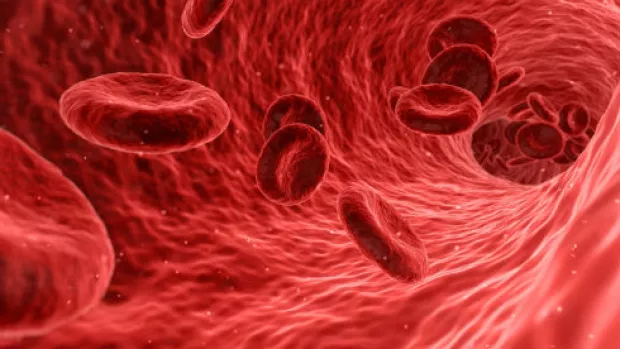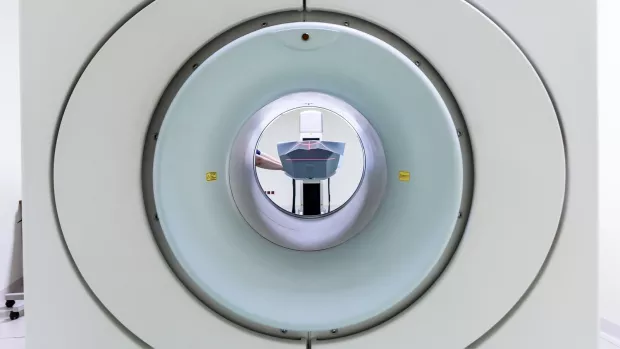A new way to measure metabolism in the brain

- Lead researcher:
- Dr Ferdia Gallagher
- Based at:
- University of Cambridge
- MS Society funding:
- £39,900
- Status:
- Active
Dr Gallagher is testing a new magnetic resonance imaging (MRI) technique – called hyperpolarized carbon-13 MRI – to measure changes in the brains of people with MS.
About the project
MRI is a common technique used to measure MS activity in the brain, but it can’t pick up on changes in metabolism. There’s evidence to suggest that sugar-like molecules are broken down (or metabolised) differently by areas of the brain inside and outside of an MS lesion. Changes in metabolism tend to happen much earlier on in MS than the structural changes that can be seen using standard MRI so could be useful as a marker of MS activity.
This project will test hyperpolarized carbon-13 MRI, to see if the way it metabolises is different in MS lesions compared to other parts of the brain.
The team will inject a sugar-like molecule called pyruvate into people with MS. They’ll then be able to see where the pyruvate sits in the brain and how it’s metabolised into other molecules. One of the break-down products is called lactic acid, and the team believe that this lactic acid will highlight areas of the brain with MS activity.
Results so far
Dr Gallagher and the team have demonstrated that pyruvate is converted into lactate in the normal brain. They have also shown that pyruvate is converted into a molecule called bicarbonate (which is similar to baking soda). This is exciting as it opens up the possibility of imaging these processes in the brain for the very first time.
Over the next year, our team plan on continuing the study to further understand pyruvate metabolism in the brain. Understanding how pyruvate is processed in the brain will provide a better way of detecting MS, before it is detectable with conventional imaging.
How will it help people with MS?
This new technique could be used to help us understand more about the underlying biology of MS and how to develop new treatments. Faster, more sensitive imaging techniques could help to speed up diagnosis and help to quickly determine which treatments are most effective for each person.
This early-stage study is to determine how the technique might be beneficial for people with MS in the future.
The difference you can make?
Innovative new techniques are crucial to develop our understanding of MS and speed up the development of treatments. You can help by donating to stop MS today.




